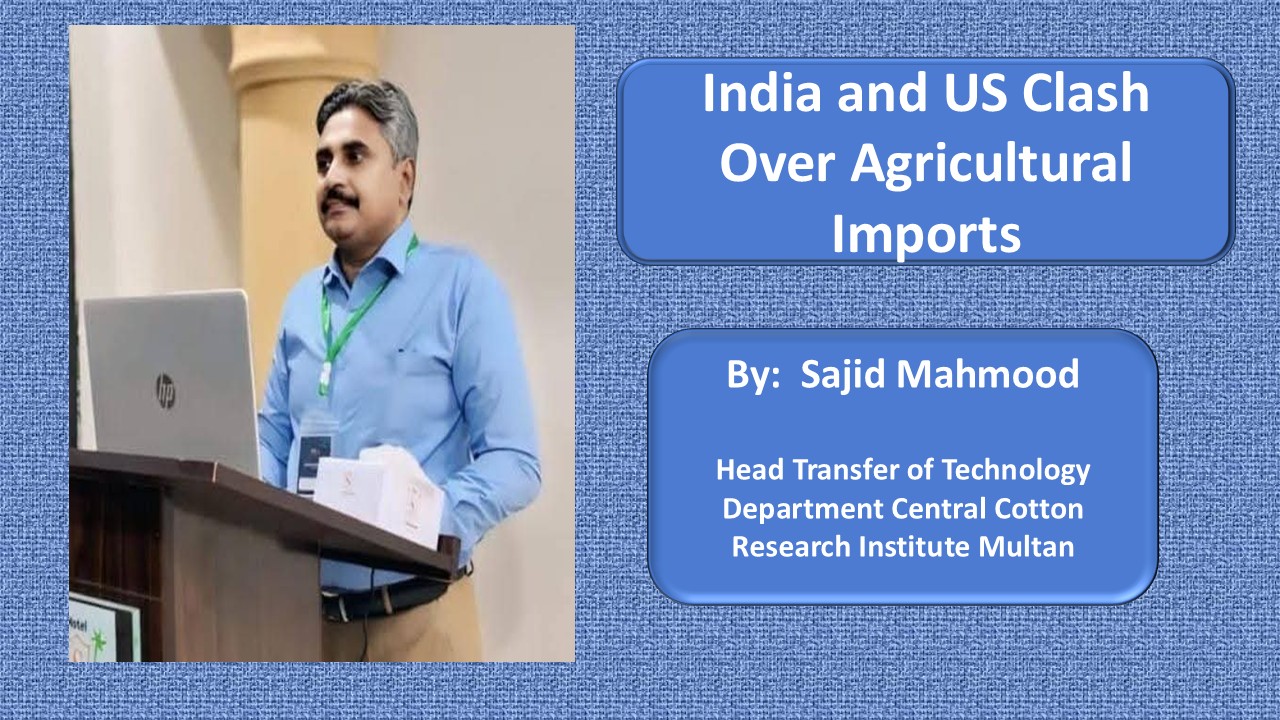Trade War Looms: India and US Clash Over Agricultural Imports

The recent tensions between India and the US over trade policies, particularly regarding agricultural imports and exports, have escalated beyond a bilateral issue to a major economic and political challenge. The US has announced plans to impose a 25% additional tariff on several Indian products starting August 1, 2025, citing trade policy concerns. However, this move is rooted in deeper issues, including global politics, India’s relations with Russia, and internal pressures within the US agricultural industry.
The GM Seed Controversy
A significant point of contention is India’s refusal to yield to US pressure regarding genetically modified (GM) seeds. The US wants India to open its markets to American GM seeds, but the Indian government remains hesitant due to concerns over their safety, environmental impact, and the potential threat to local farmers. India believes that allowing GM seeds would pave the way for corporate farming, which could undermine the livelihoods of millions of small farmers and jeopardize the country’s agricultural self-sufficiency.
India’s Stance: Protecting Farmers and Food Security
India’s position is centered on safeguarding its food security, rural economy, and farmers’ interests. The country is wary of allowing imports of American agricultural products, including milk, corn, and soybeans, which could harm local farmers and the agricultural sector. With nearly 60% of its population dependent on agriculture, India cannot afford to compromise its agricultural self-reliance.
US Interests: Expanding Market Access
The US, on the other hand, seeks to expand its agricultural exports to India, driven by its own economic interests. With rising agricultural production and increasing global competition, the US sees India as a potential market for its products. However, for India, this is not just a matter of trade but also of protecting the livelihoods of its farmers and ensuring food security.
The Way Forward: A Delicate Balance
The current situation between India and the US is complex and sensitive. If the US follows through with its tariff plans, it could strain bilateral trade relations and spark a global debate. Conversely, if India opens its markets to US agricultural products, it could face significant domestic opposition, particularly with elections looming.
In essence, the standoff between India and the US goes beyond trade; it involves issues of sovereignty, political acumen, and public welfare. The outcome will depend on how both countries navigate these challenges and find a mutually beneficial solution. Failure to do so could escalate the situation into a larger global crisis with far-reaching consequences.
Disclaimer (for beginning or end of article):
The views and opinions expressed in this article are those of the author, Sajid Mahmood, and do not necessarily reflect the official policy or position of any affiliated organization. The content is based on personal observations and analysis.
